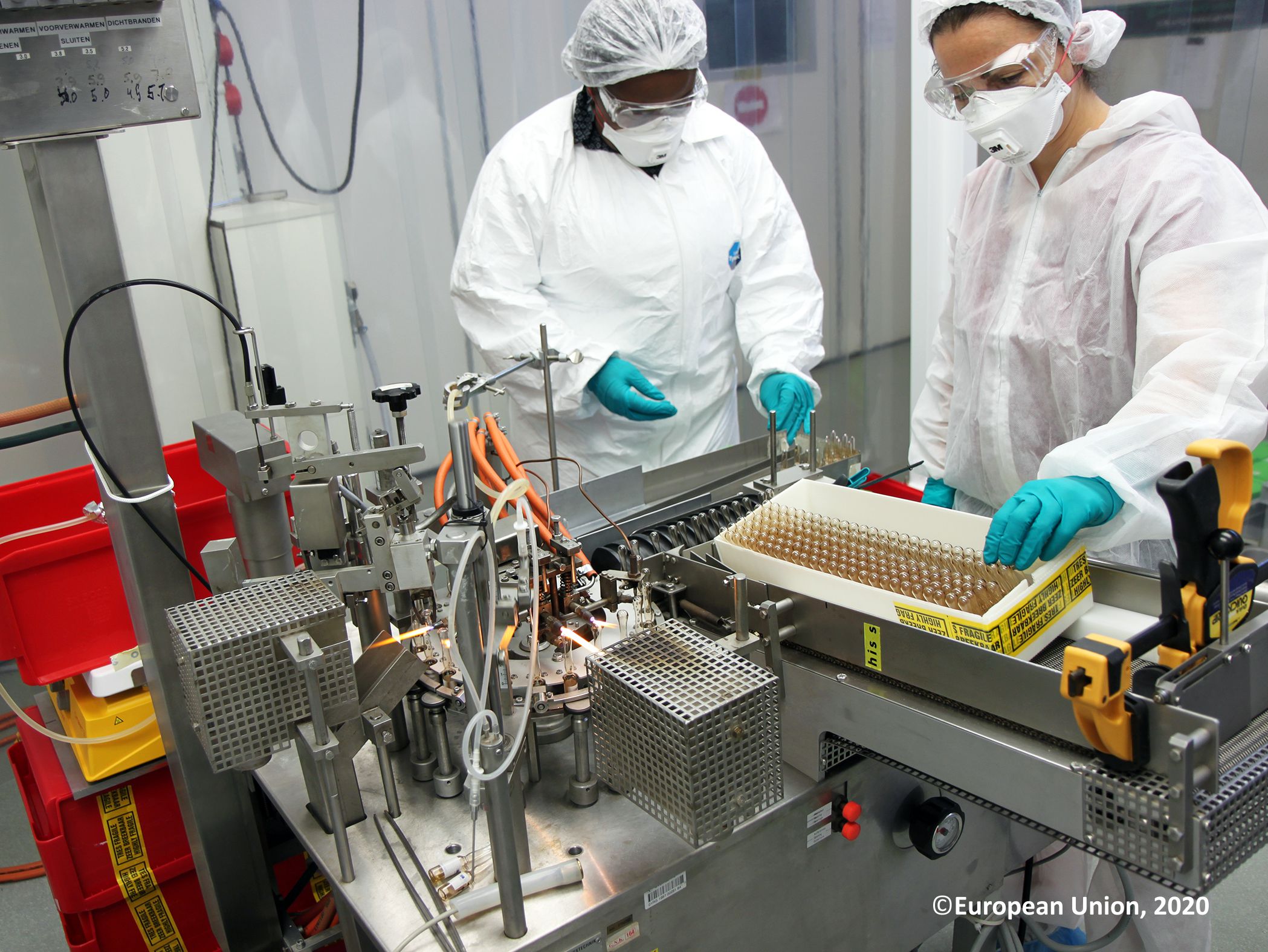Earlier vaccination coverage for 400,000 people does not mean that the pandemic is under control / EMA procedure has higher standards than British procedure / Ireland sets an example in pandemic management
"We should not look to the UK but to Ireland when considering how best to deal with the pandemic," said MEP and health policy spokesman of the largest group in the European Parliament (EPP, Christian Democrats) Peter Liese, in view of the start of corona vaccination in the UK.
“Vaccination starts today in Great Britain, but that does not mean that the country will ultimately come through the pandemic better than the EU countries. So far, pandemic management in the UK has been very poor and I have my doubts about the very fast emergency authorisation of the vaccine. Although the UK has a very good national authority, the requirements for approval by the European Medicines Agency are higher than for emergency authorisation in the UK. Therefore, it is good that EU countries, although they could in principle, do not go down the emergency route, but the route of an orderly procedure. I do not expect dramatic side effects, but I still believe that we have a higher standard and that it is worth waiting three weeks. Especially since BioNTech has given a written assurance that starting vaccination earlier in the UK does not mean that the country will end up with more vaccine than other countries. The vaccine intended for other EU countries is already partly produced and stored and will not go to Great Britain," Liese says (see Sean Marett's statement at the end).
"Irrespective of the start of vaccination for a small part of the population, we will still have to implement targeted measures to contain the corona virus throughout Europe in the coming months. It is worth looking at the country that currently has the lowest infection rates in the EU. Ireland had significantly higher per capita population figures in October than many other countries (7-day incidence for Ireland on 22 October: 165[1]). In the last 10 days, Ireland has consistently been below 50 per 100,000 inhabitants, and this without schools being closed or a complete curfew being imposed. In my view, four measures were effective:
- There was a general ban on private visits. One was also not allowed to receive people who did not live in one's own home. However, there were exceptions, e.g. for older people who would otherwise be threatened with isolation, and one was allowed to meet another family outside. This latter measure is extremely reasonable, as the virus spreads much less outdoors than indoors.
- In public transport there was a limit of 25% occupancy.
- There is a basic obligation to have a home office for all those who can implement this in any way.
- There is a mask obligation in schools from 13 years of age and an absolute requirement to keep a distance of at least one metre, in secondary schools even two metres. Such a regulation is of course a challenge, but it can be ensured, for example, by renting additional buildings or by changing lessons.
With these measures, Ireland has managed to reduce infection rates to a quarter of the figures within a few weeks and has therefore now moved from the strict level 5 to the much less restrictive level 3. Both restaurants and gyms have reopened.
Many people in Europa are longing for a little more normality. The truth is that we can get there if we take more targeted action against the virus than before," concluded Liese.
Sean Marett, BioNTech's CCO and CBO, had assured Liese that part of the vaccine intended for the countries of the European Union had already been produced and stored. „Part of the amount of vaccine that is foreseen for the European Union and other countries is already produced and stored. When EMA gives approval, vaccination can start immediately. The emergency approval in the UK does not affect number doses delivered over the next months for other regions like the European Union. We expect millions of citizens in the EU will be vaccinated in the first quarter of 2021 if we receive regulatory approval this year“, said Marett in a written statement to Peter Liese.


